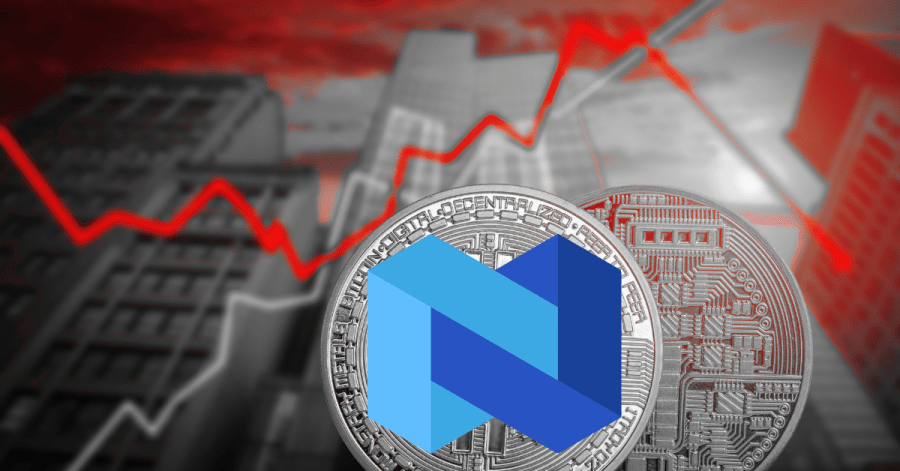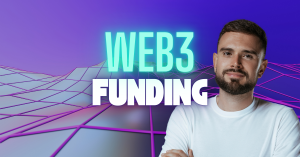Only a few months ago, there were talks that the name of the cryptocurrency exchange and lending platform Nexo, would become even more recognizable as its biggest competitors – Celsius Network, BlockFi, and FTX, filed for bankruptcy.
Today, Nexo is indeed the name under the spotlight. The Bulgarian Prosecutor’s Office and the State Security Service are currently investigating the crypto bank, which many dubbed as a crypto unicorn, in a large-scale operation against an international crypto scheme.
This morning, the Bulgarian Ministry of Internal Affairs, together with The Bulgarian Prosecutor’s Office and foreign investigators, entered more than 15 addresses associated with the activities of Nexo, to begin international investigation into alleged illegal activities conducted by the company. These include money laundering, organized criminal group, tax crimes, crimes related to providing banking activity without the necessary license, computer fraud, and violations of the international sanctions against Russia.
According to the Prosecutor’s Office briefing, Nexo operates through numerous registered commercial companies, most of which are “post boxes” that have been set up to cover financial, legal, and tax fraud.
“We can clarify that for the last 5 years, more than $94B have passed through the platform in more than 3.6M transactions and some of these transactions were made by risky market players. A client of the platform is a person, who is officially declared to have funded terrorist acts,” the spokesperson of the Chief Prosecutor commented in a national briefing earlier today.
In what seems like a response, the company tweeted that besides being fully automated, Nexo has 30+ AML compliance officers who ensure that the platform retains a real-time picture of their clients, which includes adverse media publications, OFAC sanctions lists, flow, and source of the funds.
“Unfortunately, with the recent regulatory crackdown on crypto, some regulators have recently adopted the kick first, ask questions later approach. In corrupt countries, it is bordering with racketeering, but that too shall pass. We are always cooperating with the relevant authorities and regulators, and we are hopeful that we will have some exciting news in the weeks to come” Nexo tweeted in response.
The company manages digital assets and under the European Anti Money Laundry Directive 5 (AMLD5), it needs to have a crypto wallet license. In Europe, Nexo has only licenses in Lithuania, but they are for registration as a virtual currency exchange operator and depository virtual currency wallet operator, not for giving credits or taking deposits.
It has been confirmed that the raid happened in one of the offices of Nexo that has operational expense-related functions – payroll, customer support, back office.
Crypto experts weigh in
“First, it is worth noting that there is no such regulated entity as a crypto bank. There are platforms with functionalities that are similar to the ones of banks because crypto assets are not regulated. Some countries have set extensive regulations, while others regulate just some aspects of the crypto market, such as the convertibility of crypto and fiat currencies. The regulations for money laundering prevention also differ from country to country,” The Recursive’s source from the crypto space commented, asking to remain anonymous.
He shares that he always advises his clients (blockchain companies) to ensure that they have taken all measures to prevent money laundering even if they are not legally obliged to do so. In order to prevent the possibility of money laundering, crypto platforms use solutions such as Sumsub and Chainalysis.
“Taking into account the technology behind crypto platforms and the lack of transparency that can be achieved, there are numerous possibilities for speculations. However, the pure fact that one company has built a network of companies does not by itself mean fraud. The issue with all the crypto platforms that went bankrupt recently is connected to the lack of transparency and regulations in the way virtual assets were stored and managed by crypto platforms. Oftentimes this leads to wrong speculation with the virtual assets, which is not always illegal under different jurisdictions, but is immoral,” he says.
Facing US lawsuits
The national special action occurs exactly one month after Nexo announced it was halting operations on its key US market.
Founded in 2017 by Antoni Trenchev and Kosta Kanchev, Nexo currently manages assets amounting to around $12B. Nexo has faced some challenges including a number of US lawsuits. In October 2021, Nexo and another cryptocurrency lending platform Celsius were ordered to cease operations in New York state for security and licensing breaches. Earlier in 2022, eight US states took action against the crypto platform over unregistered interest-bearing crypto products. The State regulators in California, Kentucky, New York, Maryland, Oklahoma, South Carolina, Washington and Vermont accused Nexo of offering customers interest-bearing products that were not previously registered as securities and did not provide the necessary information about them.
In response to these accusations, Nexo committed to “find a clear path forward for the regulated provision of products and services in the US, ideally at the federal level.” According to announcements made by Nexo representatives, the company does not engage in unsecured loans and has no exposure to the LUNA/UST tokens that caused the crisis in the crypto market. In December 2022, however, Nexo announced that it would phase out its US products and services due to clashes with local regulators.
At the moment, the investigation and questioning of witnesses are ongoing, and Nexo did not respond to our invitation to confirm or comment on the investigation.
In the last couple of months, crypto companies have been under the radar of regulators around the world, raising concerns about the vitality of the crypto markets. This raises questions about the legal and ethical practices in the entire crypto space. Most experts in the field expect more regulations to follow.







